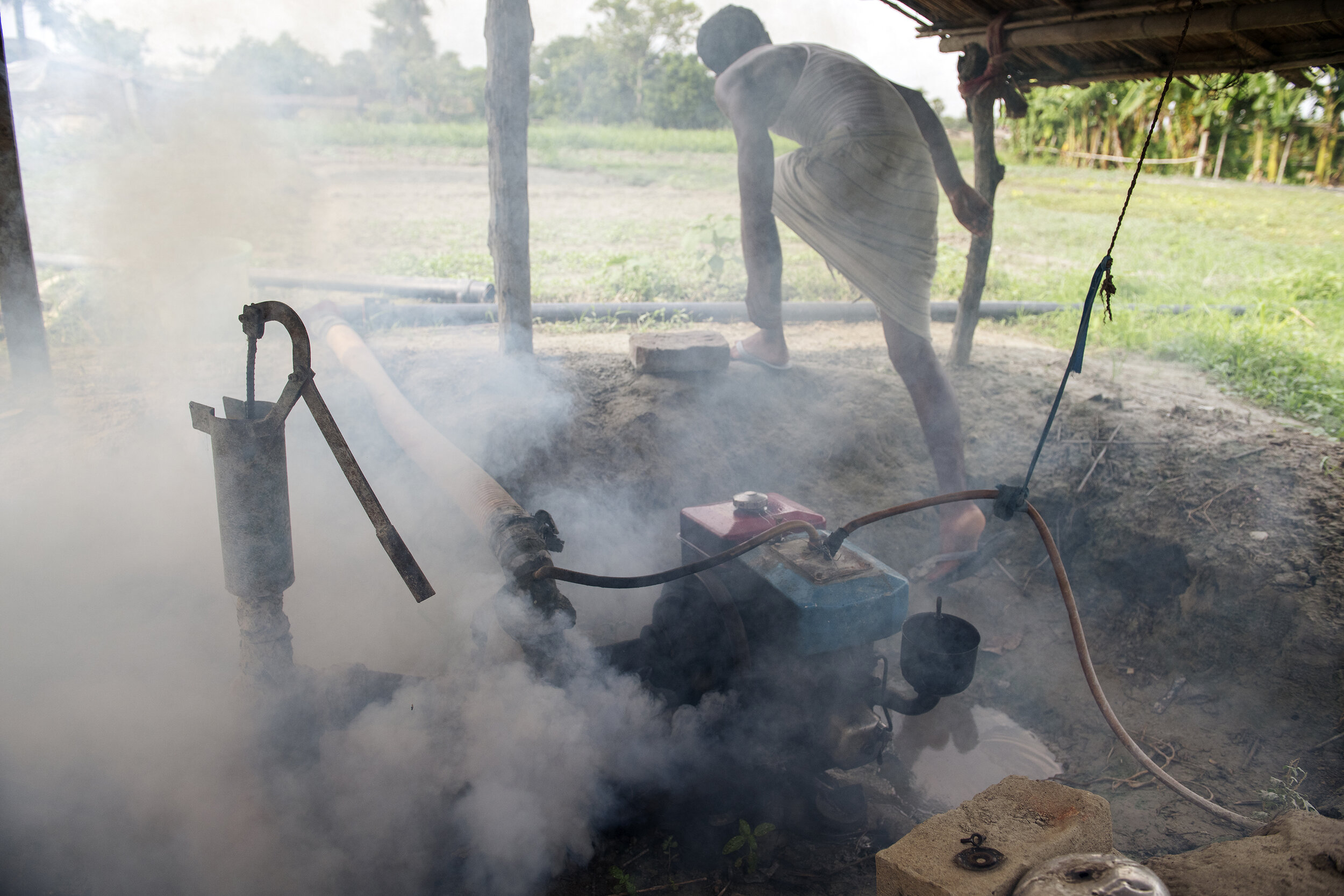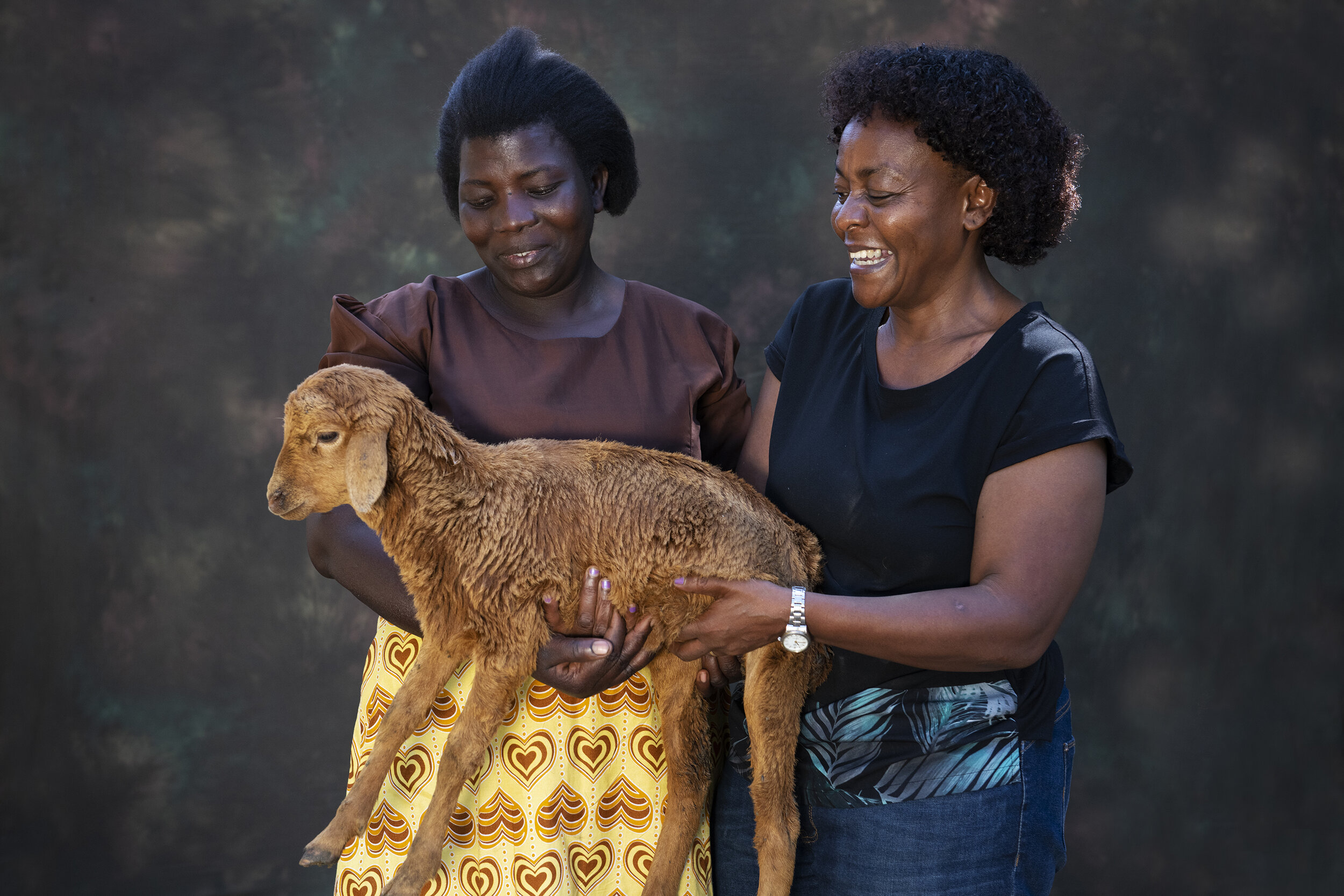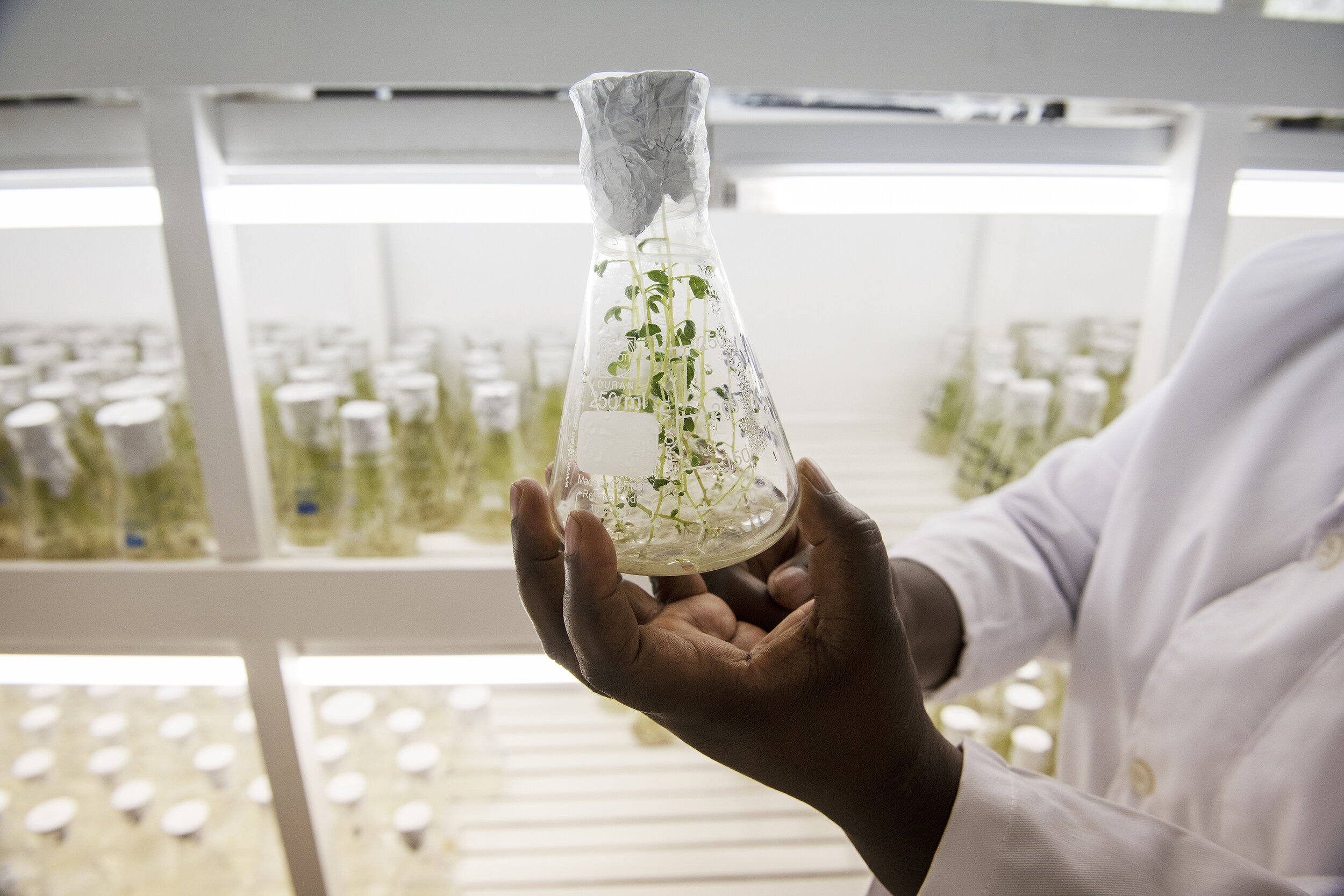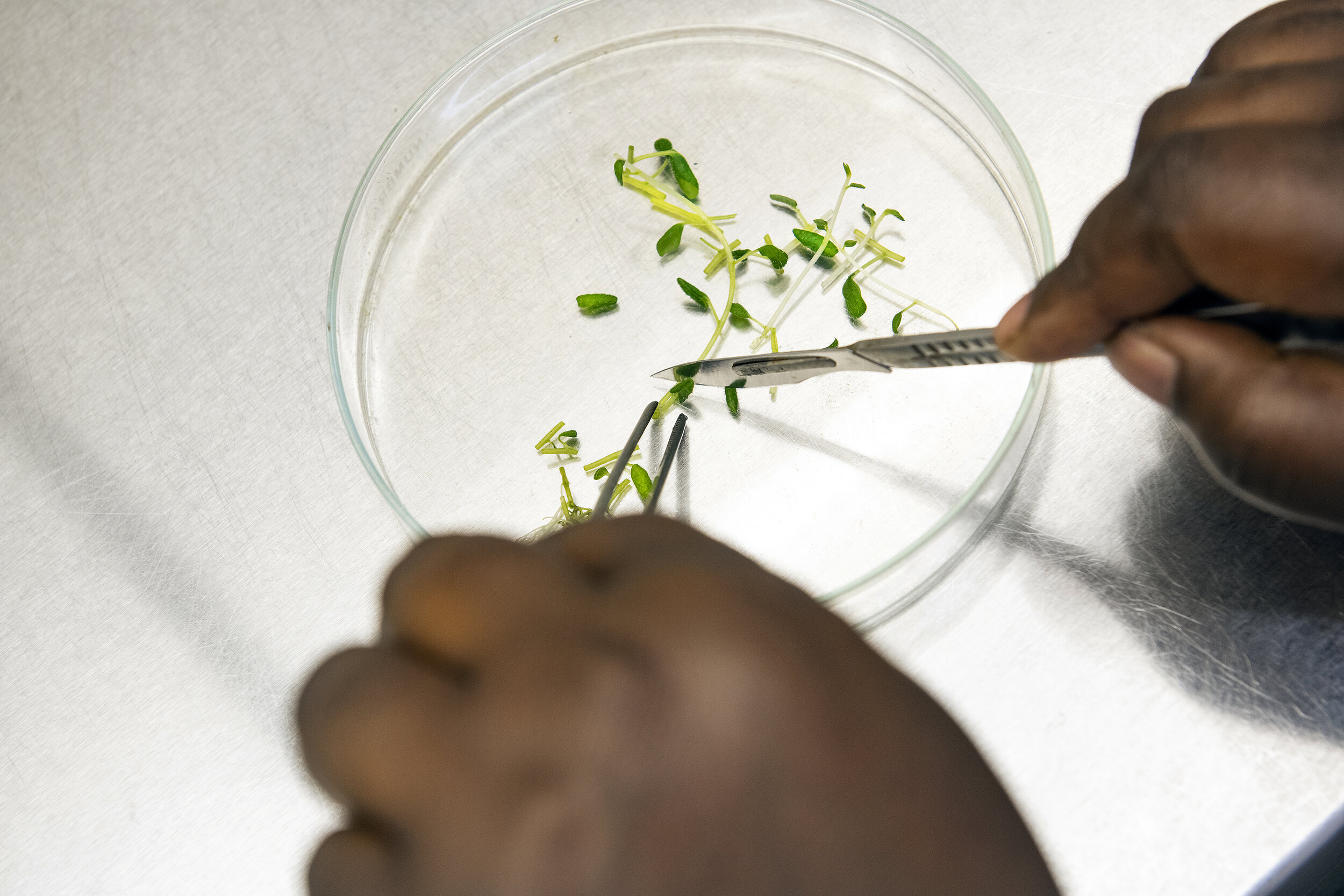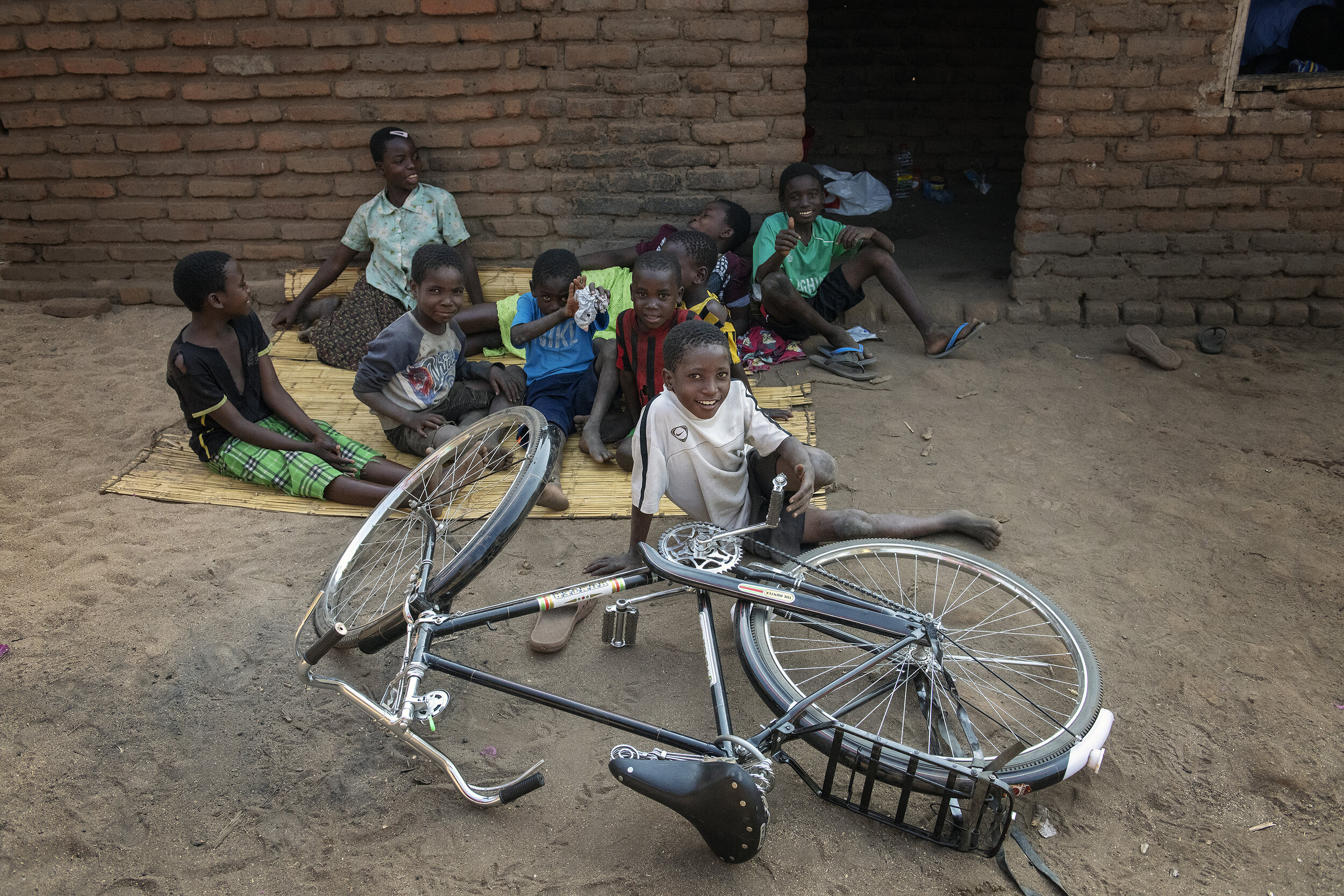smart solutions
Towards a world free of poverty, hunger and environmental degradation, CGIAR is the world's largest global agricultural innovation network.The world is facing the looming challenge of feeding a growing population that is expected to reach 9.5 billion by 2050. One of the greatest pressure points pushing the planet to its limits is our food system. This is the way that humans grow, produce, transport and consume food. As these systems currently operate, they’re contributing negatively to climate change and deforestation; they’re compromising freshwater stocks and rapidly reducing biodiversity. Food systems must be transformed to produce more nutritious food with a lower environmental footprint. The “improvement” of agriculture and the overall food system is a significant, necessary step toward the sustainable development of our planet. There are a number of initiatives around the world working towards this end. And many of these smart solutions reduce global hunger and suffering, improve food security for generations to come, and support sustainable livelihoods to help lift millions of people out of poverty.
I visited 6 countries for CGIAR in 2018 focusing on CGIAR’s transformations impacting food systems. I wanted to bring the scientists to the farmers to create a better understanding between them. It proved to be a lovely experience for all of us. Just have a look and you will understand.
A cleaner, faster, cheaper alternative for water pumps in eastern India
Farmer Yatin Kumar and researcher Tushaar Shah show off the solar technology that is replacing diesel-powered water pumps for irrigation and household use in Bihar, India.
Not only we can irrigate our land, but also we can use a solar pump as a tool of livelihood. Yatin Kumar - farmer
An Interactive Voice Response service is putting remote farmers in touch with a ‘world of information’ to improve livelihoods in nepal
Farmer Sita Kumari from Surkhet village in Nepal checks out the features of a new Interactive Voice Response service with researcher Pratima Baral.
Researcher Pratima Baral hopes to use technology to improve farmers’ lives.
Responding to drought, researchers and farmers work to climate-proof households. Goats and greenhouses: Kenya adapts to a changing climate
Farmer Poline Achieng Omondi and researcher Julie Ojango hold a new breed of climate-resilient livestock in Nyando, Kenya. New varieties of crops and livestock, as well as adapted management techniques, are benefitting households across the area.
“The fact that through what I do, or through the knowledge that I have, I can help somebody address the challenge, and we can actually produce enough food, either for households or for communities, for me, that’s a big game-changer. When you can actually help to make a difference and make the world a better place, I think that’s a good reason to work.” says researcher Julie Ojango.
Higher yields plus greater climate resilience add up to greater profits and food and nutrition security for farmers. Sweet returns for sweet potato farmers in Malawi
Sweet potato farmer, Gerald Action joins researcher Felistus Chipungu, in appreciating the vine that has transformed his livelihood.
“Breeding for resilience and therefore making a greater contribution to human livelihoods is what makes me happy,” Felistus says. “These improved varieties are providing solutions to the hunger problems faced by many Malawian farmers. If you go around in this community, you will find many tangible and visible impacts attributed to these varieties. As in Gerald’s case, many other families are building decent homes, buying assets, and, most importantly, paying school fees and ensuring their families have quality food.”
A healthy change: Food systems research puts safety first for transitioning markets in Vietnam
Hung Nguyen is researching food systems to improve conditions for market vendors like Ly Thi Nguyen in Hanoi.
One of the main challenges when working in food systems and food safety in Vietnam is really the trust of the consumer Hung Nguyen - researcher
Making the most of high-yielding groundnuts in Nigeria. By pooling resources, a women's group in Bunkure is reaping more than it sows
A high-yielding variety of groundnut has opened up opportunities for women like Talatu Idrissa in northern Nigeria. Hakeem Ajeigbe, a researcher in Nigeria, takes a bite.
Talatu’s women’s group is ready to keep adapting their practices to benefit their families and communities.
Stopping the march of fall armyworm in Nigeria. Scientists and communities putting the brakes on the fast-spreading pest.
Abebe Menkir, researcher, and Bello Abu Bakkar, president of the Nigerian Maize Association, inspect a plant infested by fall armyworm.
In eastern and southern Africa, the maize team of researchers is making intensive efforts to identify and develop improved maize hybrids with genetic resistance to fall army worm. The pest-resistant maize varieties are expected to become a complementary component of a management strategy that includes biological control agents, pesticides and other options for controlling damage to local food crops.








